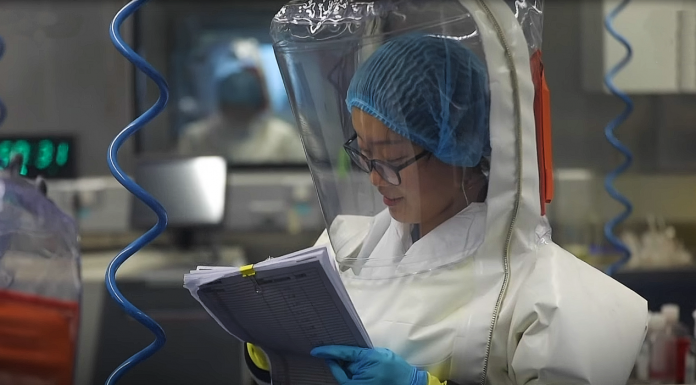(Stephen Horn, Headline USA) Thousands of University of North Carolina records about coronavirus research will be kept secret—at least for now—after a state judge ruled on Friday against medical watchdog U.S. Right to Know, which is suing UNC as part of its investigation into the origins of COVID-19.
“In a court hearing today before NC Judge Alyson Grine, the University of North Carolina argued against disclosing to the public about 50,000 pages of documents, mostly of Prof. Ralph Baric, possibly holding clues about the origins of Covid-19,” U.S. Right to Know Executive Director Gary Ruskin said on Twitter/X following Friday’s hearing.
“In her decision today, Judge Grine largely sided with UNC and against public disclosure. However, Judge Grine did order UNC to make 251 documents public,” he said.
In a court hearing today before NC Judge Alyson Grine, the University of North Carolina argued against disclosing to the public about 50,000 pages of documents, mostly of Prof. Ralph Baric, possibly holding clues about the origins of Covid-19.
In her decision today, Judge Grine…
— Gary Ruskin (@garyruskin) October 18, 2024
UNC’s possible connection to the origins of the SARS-CoV-2 virus has been previously highlighted by U.S. Right to Know, including in documents related to Project DEFUSE, a research proposal which involved enhancing the infectivity of bat coronaviruses.
A draft of that proposal obtained by U.S. Right to Know shows that the researchers planned to secretly conduct elements of this research at the Wuhan Institute of Virology, with a comment by leading UNC coronavirologist Dr. Ralph Baric noting that American researchers would “likely freak out” if they knew that the gain-of-function research would be taking place under the lower biosafety level of the Chinese facility.
In 2022, after filing a number of requests under North Carolina public records law, including documents and communications related to Baric and the Wuhan Institute of Virology, U.S. Right to Know filed a lawsuit in the state court over 50,000 pages of responsive documents that UNC had withheld.
We have filed an FOI lawsuit against the University of North Carolina, for seven public records requests during the last 21 months about the work of @UNC Prof. Ralph Baric and others, related to the origins of Covid-19. #FOIA https://t.co/H4BtZMzMvo pic.twitter.com/o7dLeA5Z3G
— Gary Ruskin (@garyruskin) April 21, 2022
The dispute between the parties involved the interpretation of an exception to the state’s public records act for “research data, records, and information of a proprietary nature”, which the university argued should be interpreted broadly to include the records it had refused to provide.
U.S. Right to Know scored a victory in the case last November, when the judge assigned a 3rd party to review the records at issue over the objection of UNC that its own internal analysis was sufficient.
The ensuing report found that UNC had withheld approximately 250 documents which qualified as public records under its own interpretation of the law, including 120 grant administration documents, 20 manuscripts & presentations, 23 material transfer agreements, and 87 research project collaboration documents. The 3rd-party report also found that another 2,704 documents could only be released if the Judge agreed with U.S. Right to Know’s arguments about the law.
Unfortunately for transparency advocates, Judge Grine agreed at a Friday hearing with the university’s arguments against disclosure, ruling that UNC only has to turn over the 250 records identified by the report.
Ruskin said his group is evaluating its legal options, including the possibility of an appeal.
1/ @USRightToKnow has scored another win in it’s COVID-19 origins related public records lawsuit against UNC-CH
Yesterday’s report by a special master indicates at least 250 of the documents denied by the university do qualify as public records
🧵https://t.co/pbHqmcDd62 pic.twitter.com/lsWbctFAIP— Stephen Horn (@stephenehorn) August 1, 2024
Raleigh-based journalist Stephen Horn can be found on Twitter at @stephenehorn or on Substack (“This Week in the Triangle”).

